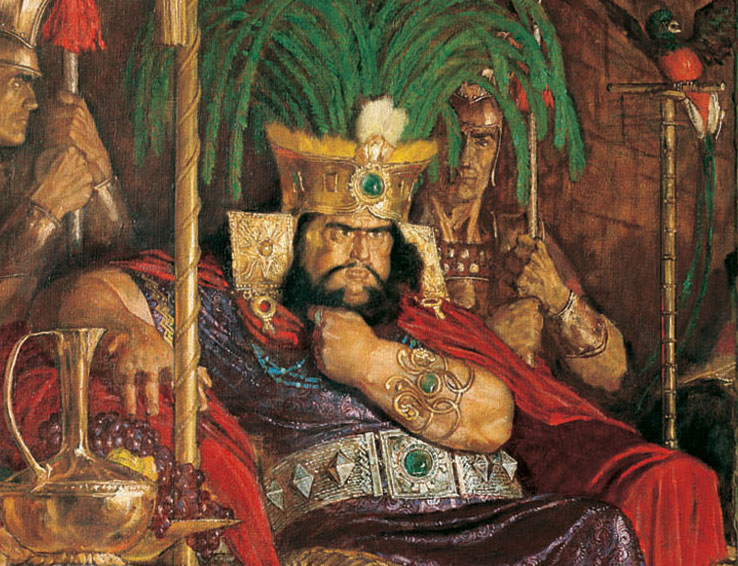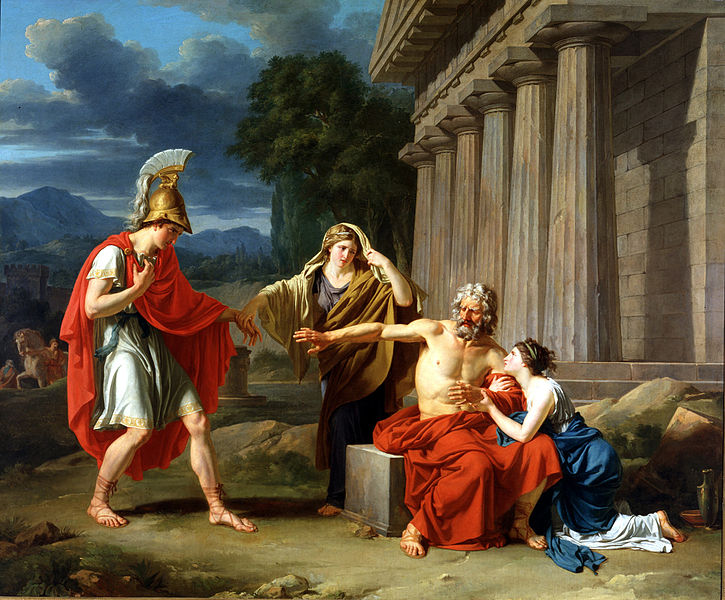Government and Power in The Book of Mormon and Ancient Greece
Steve
Stenquist
Professor
Insalaco
CL
CV 201
18
February, 2020
Monarchy in the Book of Mormon and
Ancient Greece
Long ago, in the ancient Americas, King
Mosiah warned his people of the dangers of a monarchy. He warned that kings can
often be selfish and cruel, and can lead their citizens to commit acts of sin
and violence. He emphasized the importance of a government controlled by the
voice of the people and the law. The ancient Greeks also saw their society torn
apart by wars and hardships caused by monarchical government. On countless
occasions they were involved in war and violence and eventually tried to move
towards a more democratic system. Despite the downfalls of a monarchy discussed
in both the ancient Americas and ancient Greece, people throughout history have
often been drawn to strong leaders and have repeatedly trusted them more than
democracy. As shown in the Book of Mormon and in ancient Greece, a monarchical
government with a prideful king will often lead to war and sin and, despite
these problems, is often favored by the people.
One of the first points that Mosiah
makes about a society with a monarchical power structure is that the prideful
kings will lead their people to conflict. Mosiah’s shows this concern by
proclaiming, “And now if there should be
another (king) appointed in his stead, behold I fear there would rise contentions among
you” (Mosiah 29:7, parenthesis
added), and also when he makes the point that to take up the kingdom again, his
son would have to “turn again to his pride” (Mosiah 29: 9). This same principle
of pride leading to conflict affected Greek power structures. The ancient
Greeks had a tradition of following a basileus, or strong leader who acted as a
king (Oxford Classical Dictionary).
Because the basileus was entrusted to lead the people and was given a high
degree of honor, he could often inspire jealousy and conflict amongst his people.
One example of jealous behavior towards the basileus in The Iliad occurs when Achilles becomes angry with Agamemnon requiring
Achilles to give him his wife, Briseis. Briseis was Achilles’ war prize and was
thus a symbol of honor for both Achilles and Agamemnon. Agamemnon had his own
wife from the war but was forced to give her up and, as Basileus, could not be
seen without the honor of wartime spoils. He thus takes Achilles’ wife casuing a
feud between the two of them and leading to Achilles’ defection (Homer, 8).
Much like Mosiah suggests, the pride caused by Agamemnon’s title led to
jealousy and conflict in the Greek army.
 Mosiah worries that a kings will become tyrannical and impose their will upon the people much like King Noah did to the Nephites
Mosiah worries that a kings will become tyrannical and impose their will upon the people much like King Noah did to the Nephites
Apart from conflict, a strong king
can also lead his people into sin and shame. Mosiah suggests that “if it were possible that you could
have just men to be your kings…… then it would be expedient that ye should
always have kings to rule over you” (Mosiah 29:13) but also warns his people to
consider “how much iniquity doth one wicked king cause to be
committed, yea, and what great destruction!” (Mosiah 29: 17). The Greeks would
have done well to heed Mosiah’s warning. In Greek culture, because the king had
so much power, he could lead his people to be prosperous and successful or
could lead them to wickedness and strife. No example of this is clearer than
that of Oedipus. Oedipus was a brilliant king whose clever leadership led his
people to great wealth before his terrible mistakes led to great shame and sin.
Oedipus was doomed to the fate of killing his father and marrying his mother
and was too prideful to heed the warnings of wise seers who advised him to
change his ways. This pride led to the shame of all of his family and left his
daughters without hope of marriage (Sophocles 63). Because so many cities had
put so much trust in a flawed leader like Oedipus, (Sophocles 58) they were
disappointed and ashamed because of his wicked actions. Just as Mosiah warned,
an evil king who is given all the power over his city, led to both great good
and great evil in Greek society.
 Oedipus caused great evil to come upon both himself and his family because of the great power with which he was entrusted
Oedipus caused great evil to come upon both himself and his family because of the great power with which he was entrusted
Despite the drawbacks to having
powerful kings, people are often drawn towards these leaders. Before listening
to his words, Mosiah’s people desired a king (Mosiah 29: 2) and so too did the
Greeks. In fact, even after turning to democracy, the Greeks would often favor
tyrants who came and took over with their military might (Morgan xxiv). The
reason that many people favor a single strong leader over forms of checked
power is that they feel that the strong leader can more easily do what is best
for the city’s interests without obstacles. The debate in Thucydides’ History illustrates this point
perfectly. In this debate, the Athenians were deciding what they should do with
the citizens of Mitylene, a city that had just rebelled again their rule. While
arguing that the Mitylenians should be punished severely, Creon, a supporter of
strong leaders, laments “I have often before now been convinced that a democracy
is incapable of empire”(Thucydides 281). Many people who, like Cleon, favor
more decisive action, see the decentralized power structure of a democracy as
harmful to an empire’s interests. Thus many are drawn to strong leaders because
they can make quick, harsh decisions to further the empire’s power.

Creon was one example of a person who felt that democracy did not encourage a successful empire.
Another reason that people are often
drawn to strong leaders is that these powerful people will often treat those
that support them very well. In the Greek age of tyrants, the tyrant who had
just taken over a city would often throw a large party for all the citizens and
would give them special favors to ensure their support (The Oxford Classical
Dictionary). Democratic systems usually disapprove of favors that give a leader
power which causes citizens to miss out on the possible advantages of having a
tyrant. Mosiah warned against such corrupt ways of gaining support by telling
his people that the government should rule by the law rather than by special
favors (Mosiah 29:25). A government that is bound to the law will be less
corrupt and more likely to choose what they see as right rather than what
simply gains them more support. By governing based on the law many of the
conflicts and problems present in a tyrannical system can also be mitigated.
These advantages however, often fail to convince the people that they should
turn down the immediate benefits given to them by the tyrants they more
frequently support.

King Mosiah taught that a society should be governed by laws not the whims of a king.
The Book of Mormon and Ancient
Greece both present stories of monarchical power structures that led to ruin. In
both societies, war, sin, shame, and destruction followed powerful rulers who
did wrong with their power as the people chose time and time again to forego
the benefits of a less autocratic system. Greek power structures led to many of
the problems that Mosiah foresaw and yet, they were often unable to shake off
the yoke of tyrannical leaders for any significant amount of time. This
inability to leave the rule of these strong leaders was often caused by their
own unwillingness to change and desires for a strong leader rather than the
singular strength of any one “Basileus”. Ancient Greek power structures thus serve
alongside Mosiah’s warnings as cautionary tales of the problems inherent in
monarchical power structures.
Works Cited
Murray, Oswyn.
"kingship." Oxford Classical Dictionary. March 07, 2016.
Oxford University Press. Date of access 15 Feb. 2020,
https://oxfordre.com/classics/view /10.1093/acrefore
/9780199381135.001.0001/acrefore-9780199381135-e-3529
McGlew,
James F. Tyranny and Political
Culture in Ancient Greece. Cornell University Press, 1996.
Thucydides. The
Portable Greek Historians. Edited by M.I Finley, Penguin Books, 1977,
Strand, London.
Sophocles. Oedpipus Rex. Edited by Paul Moliken, Prestwick House, 2005,
Clayton, Delaware.
Homer. The
Essential Homer, Selections from the Iliad and the Odyssey. Edited by
Stanley Lombardo, Hackett Publishing Company, 2000, Indianapolis, Indiana.

I really enjoyed reading—you present a really clear case. It involves some generalizations that feel a little broad to me; for example, Mosiah’s people agreed to Greek rule and Athenians happily embraced democracy, so clearly the people don’t always want a king. But it certainly does seem to be difficult in even those situations to avoid people like Pericles and Alma the Younger who become very personally influential, even though they have limited authority. I also appreciated the insight about favors that powerful people grant to their followers—we can find evidence of that in the king-men, mentioned later in the Book of Mormon.
ReplyDeleteYour focus on pride and its affects on the people, especially those who hold the most power, was really well structured. I liked how you tied the ideas of a Greek tragedy into the understanding of kings and rulers and how their shortcoming become the cause of many problems for they people they rule. The ideas that you brought up about the choice of the people in causing their own subjugation to a king was well developed as well. The pictures were not only helpful in following your narrative but they were very original and kept my interest. Over all I think it was a very well crafted essay and I am glad I got to read it.
ReplyDelete